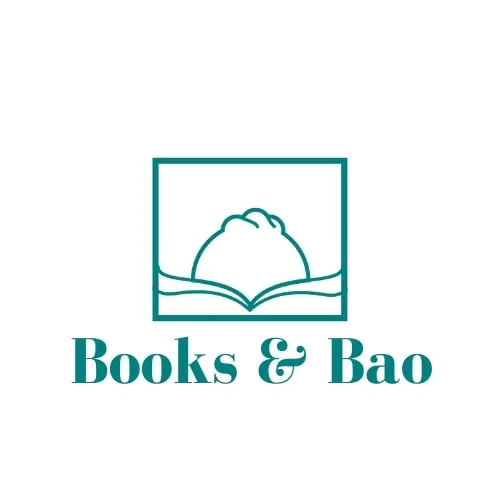Ask anyone with at least one eye on world literature in translation which countries are putting out the most groundbreaking novels, and they will likely mention South Korea. Korean novels frequently bend and break genres, explore often untouched social and political themes, and speak to our very souls.
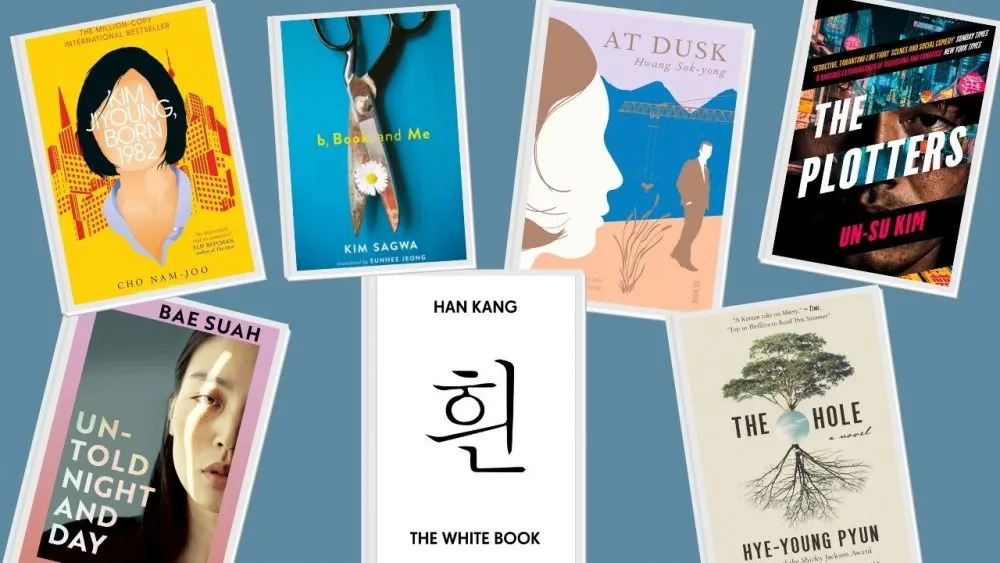
If you’re looking for the best Korean novels in English translation, this list of ten is the perfect place to start. Many of the Korean authors (and translators) mentioned here have entire libraries available for you to explore once you’ve exhausted this list.
You can also subscribe to the Korean Literature Now Magazine and browse their website to keep with the latest news, poetry, fiction, and articles.
A note on names: In Korea, family names come first, and publishers of Korean novels in translation seem to often disagree over whether or not to flip them for English language readers. Some do, some don’t. You get used to it.
Kim Jiyoung, Born 1982 by Cho Nam-joo
Translated by Jamie Chang
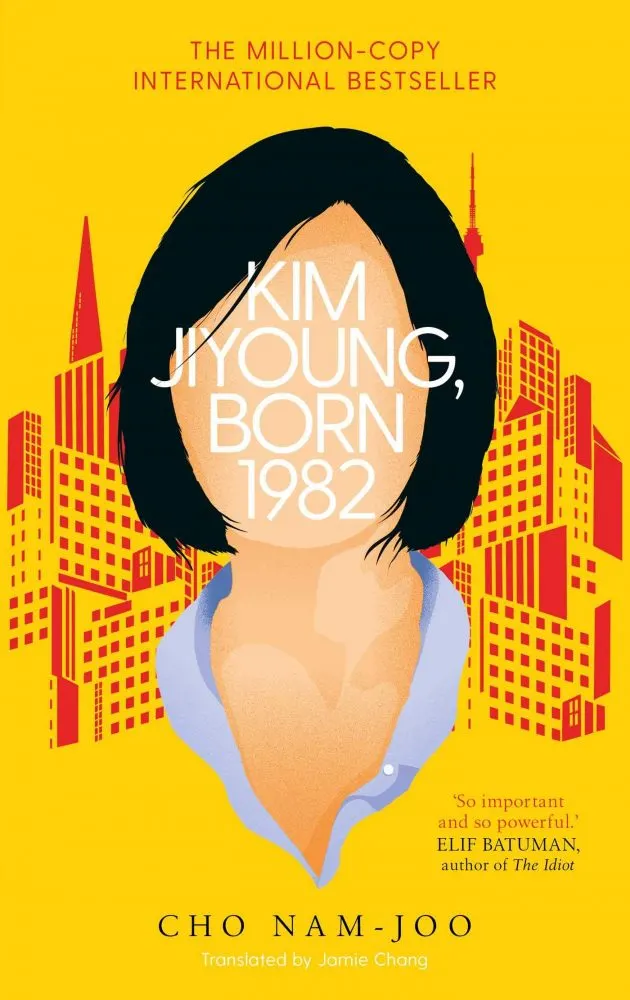
Approaching a book like Kim Jiyoung, Born 1982 is an enormous undertaking; something that should be done with real consideration. The novel has sold over a million copies in its native South Korea, has been adapted into a successful Korean film, and has been a huge spark for the fires of the #metoo movement in South Korea.
Kim Jiyoung, Born 1982 is a novel that has achieved so much, done so much good, and is now finally available to English-speaking readers. Kim Jiyoung, Born 1982 can be seen as the novelisation of the lived experiences of every ordinary Korean woman for the past forty years. It traces the life of a single woman from early childhood to marriage and motherhood.
The book begins with her being given an appointment with a psychiatrist in 2016 after she has developed a disturbing condition wherein she impersonates the voices of, and embodies the personalities of, the women in her life both alive and dead.
This condition is what initially introduces us to her character, and it is a very clear statement to the reader that Kim Jiyoung speaks for every ordinary woman of 20th and 21st Century South Korea. Everything you may have heard about Kim Jiyoung, Born 1982 being an impactful and important piece of feminist fiction is true.
It is a book that brings to light the everyday misogyny, sexism, ignorance, aggression, bias, and abuse (both active and passive) that women in South Korea (and, of course, the world over) suffer and do their best to survive in this modern world.
To really get the most out of Kim Jiyoung, Born 1982, one of the most powerful Korean novels, it’s important to first understand the novel’s purpose.
It is not a story with a view to entertaining us. It is a book that enlightens, and encourages anger in, its readers. Kim Jiyoung is not an individual. She is not a character to form a bond with. She is every abuse victim. She is every woman who has encountered sexism at home, at school, in the workplace, and on the street, and who perhaps never even realised it.
Love in the Big City by Sang Young Park
Translated by Anton Hur
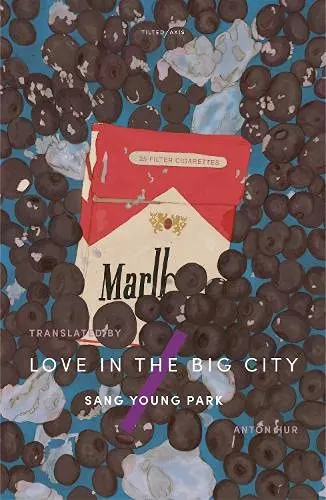
Love in the Big City is a queer Korean love story. It is a tale of hedonism and friendship; a book about looking at life from all angles: with love and hate and anger and fear in our eyes.
Divided into four acts, Love in the Big City begins with Young at university, living his best life with close friend Jaehee. The two of them live together, party hard, sleep around, and look out for one another. But, eventually, Jaehee wants to get married and grow up.
This Korean novel’s second act explores Young’s relationship to his mother, now and in the past, and the third act sees him chasing love, finding it, being let down by it, and finding it again.
Translated elegantly and beautifully by Anton Hur, Love in the Big City considers how we live our lives when time is ticking, when there is fun to be had and things to be seen; when there are things to fear and people who want to hurt us.
This is also a novel full of charming details. Young and Jaehee, in their early days, look out for one another. He keeps her stocked with Marlboro cigarettes and she keeps the fridge full of fruits (blueberries are his favourites). Those details aren’t all positive — the novel doesn’t shy away from moments of pain and fear and difficulty. Young encounters homophobia and his relationship with his mother is strain in more ways than one.
Love in the Big City paints a raw and honest but ultimately kind picture of love and life in the modern day, and for that, it is one of the finest modern Korean novels.
Read More: 12 Best K-Pop Books (For Stans Everywhere)
Violets by Kyung-sook Shin
Translated by Anton Hur
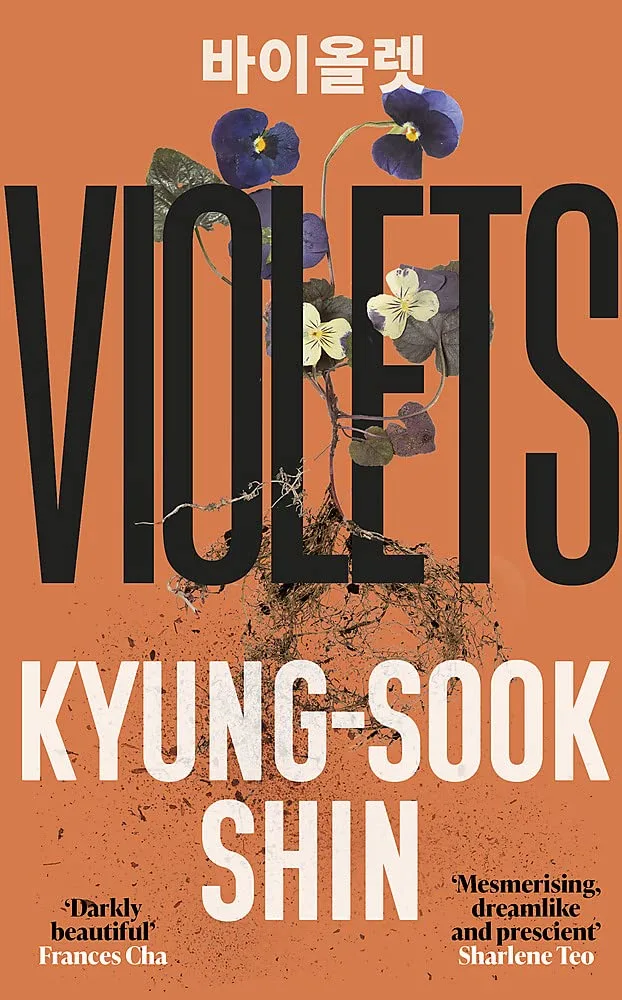
Kyung-sook Shin is one of South Korea’s most beloved and revered authors. One read of Violets and it’s easy to see why. This is a feminist tale about friendship in the modern world, and about the insidious, subtle ways in which men abuse women on a daily basis.
One of the most impactful and changing Korean novels of the past few years, Violets begins with its protagonist, San, as a young girl in 1970. She lives in a small village and is a lonely social outsider.
In the opening chapter, San shares a moment of tender intimacy with her best friend. For San, this is an awakening. For her friend, it is frightening and wrong. They don’t see each other again, and we spend the rest of the novel with San as a twenty-something living in Seoul.
When San takes a job as a florist, she develops a sweet friendship with her coworker, who soon moves in with her. But San is also at the whim of men. She learns how men violate the spaces and bodies of women on a daily basis, in a way that seems almost invisible. Violets has the power to reshape how we all see the social dynamics at play between men and women.
The physical and verbal weapons softly used by men to scare, suppress, and intimidate the women in their lives. It’s a novel that leaves a mark, but also a tender and beautiful narrative.
Watch our full video review of Violets
Greek Lessons by Han Kang
Translated by Deborah Smith & Emily Yae Won
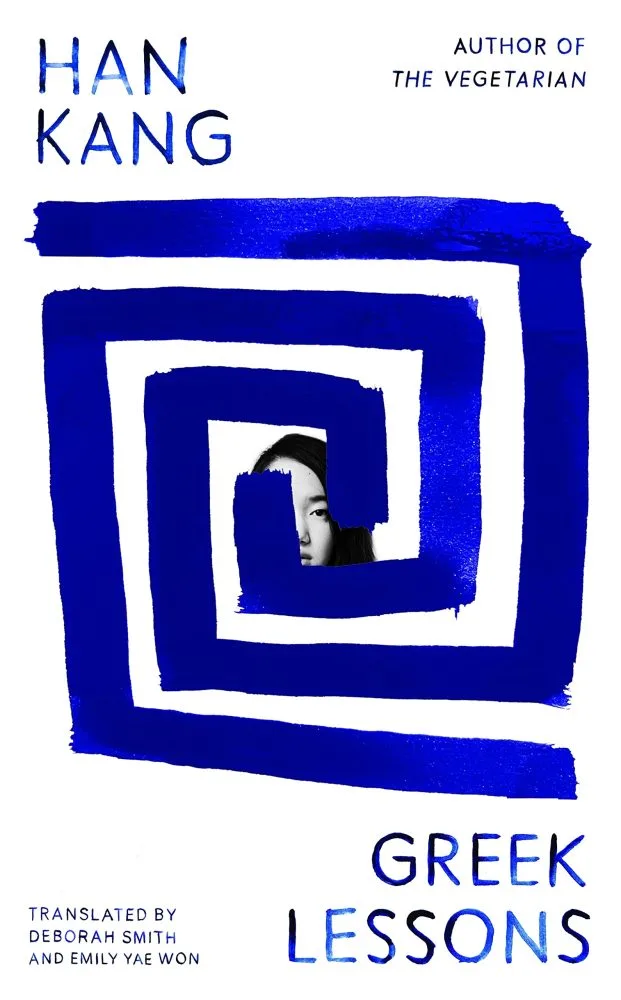
Han Kang is nothing short of a legend of Korean literature. Her novel The Vegetarian, also translated into English by Tilted Axis Press founder Deborah Smith, won the International Booker Prize in 2016 and the rest is history.
The Vegetarian was the first Korean novel that this writer ever read, and that is probably true for many readers. Han Kang and Deborah Smith opened the door for countless English-language readers to become intrigued by, and seek out more Korean literature.
With Greek Lessons, Han Kang is examining and testing the powers of language itself. This short novel follows two protagonists, one of whom is losing his sight and the other is struggling with mutism. Our mute character, an academic and successful writer, has suffered through the loss of her mother, the breakdown of her marriage, and has just lost custody of her child.
She has chosen to enrol in a class to study ancient Greek as a means of reconnecting with language, and by extension, with herself. Her teacher is our other protagonist, a man who spent his youth in Germany and who, therefore, has always felt a cultural disconnect.
His story plays out in the first person, and hers in the third. This is a striking distinction; wordlessly demonstrating how he is stuck in his mind, his memories, and his anxieties. Conversely, she feels a separation, a disconnect from herself, from her experiences — she is floating and alone, cold and confused.
Greek Lessons is a love letter to language as a means of connection, of understanding, of translating our experiences and our feelings in profound and satisfying ways. Han Kang continues to write some of the best Korean books of the modern day, and Greek Lessons is no exception.
Buy a copy of Greek Lessons here!
Walking Practice by Dolki Min
Translated by Victoria Caudle
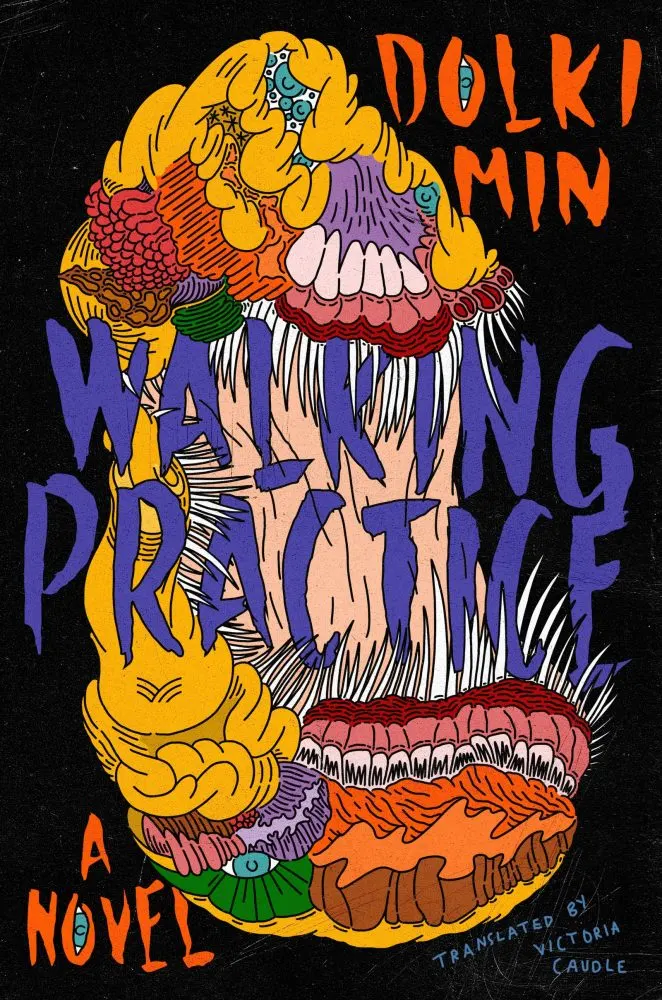
Walking Practice is an ingenious piece of speculative Korean fiction that blends elements of horror, science fiction, and satire to create something thematically dense, sometimes funny, often shocking, and satisfyingly allegorical.
Across just 150 pages, this Korean novel tells the story of a nameless and genderless alien which crash-landed on Earth fifteen years ago, after fleeing a war that destroyed their homeworld. After surviving off anything they could get their tentacles on, they found that the most satisfying food available was, in, fact, human meat.
And so, for over a decade, they have been disguising themself as men and women, and using dating apps to seduce people, glean some sexual satisfaction (and occasional companionship), before devouring them in a gleefully gruesome manner.
For the novel’s first half, we follow this pattern a few times, and we see the differences in their behaviour when presenting as a man or a woman; how the unspoken rules of society encourage them to behave.
And also how others behave in response to them. This is an explicit examination of patriarchy and the restrictions of gender expression, as well as social relationships between genders. But it goes deeper than this, as our protagonist admits to their loneliness and seeks love, companionship, community, and a sense of belonging.
With smart and satisfying queer allegories aplenty and some truly astonishing and creative translation work from Victoria Caudle, this is one of the best Korean novels of recent years.
Buy a copy of Walking Practice here!
The New Seoul Park Jelly Massacre by Cho Yeeun
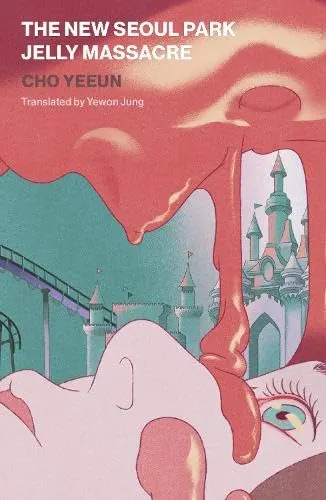
Told from multiple perspectives, The New Seoul Park Jelly Massacre provides the reader with what it says on the tin: a massacre about jelly at a theme park in Seoul. We begin with a young girl whose parents don’t get along. She so wishes they did, and when she gets lost in the crowd, the girl meets a man whose face is out of focus, and is offering visitors to the park a jelly sweet that will keep those who eat them bonded forever.
This turns out to be unsettlingly literal, as the jelly sweet causes its consumers to melt into jelly, and their forms begin to melt into one amorphous thing. We then see this gradual massacre play out from different angles: that of a girl in a difficult romance, that of a fed-up employee who wears a mascot uniform, and even that of a successful CEO who is secretly part of a satanic cult.
Thematically, these people represent dissatisfaction, exhaustion, and frustration—in work, love, and life—and the theme park is their place to escape; the place where dreams come true. But things are never that simple, are they?
I Want to Die But I Want to Eat Tteokbokki by Baek Sehee
Translated by Anton Hur
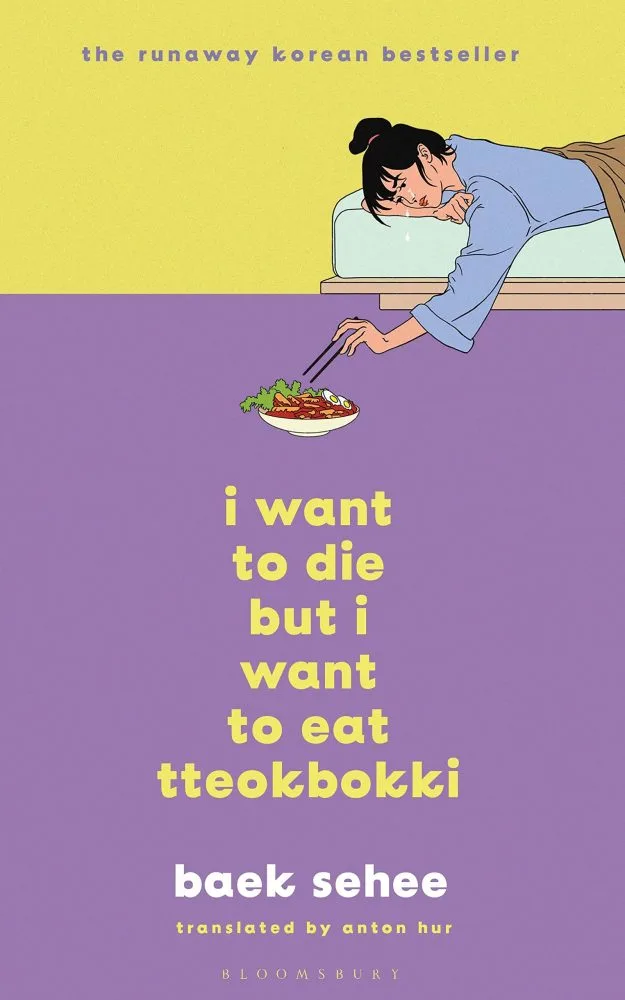
In her introduction to this incredible book, author Baek Sehee notes that her hope is for people to read this book and think, “I wasn’t the only person who felt like this.” To that end, I Want to Die But I Want to Eat Tteokbokki is an exercise in empathy; in the author opening up her chest and letting her darkest feelings tumble out, in the hope that you will feel understood.
Depression is isolating, frightening, and draining. Knowing there’s someone else out there who has felt this way — who still feels this way — can be incredibly comforting.
I Want to Die But I Want to Eat Tteokbokki is unique amongst these other Korean novels in that it isn’t actually a novel, but rather a kind of epistolary narrative that tracks a woman’s life through therapy. Most chapters begin and/or end with a confession: a personal experience or a feeling related to the author’s depression and anxieties. The rest of the chapter is a transcript of a therapy session.
These sessions divulge personal experiences and opinions, and also provide us with advice and understanding from the therapist as they listen to the author’s experiences. It feels very voyeuristic, getting to know this author’s inner thoughts and feelings so intimately, but the sense of companionship that comes from it all is so appreciated.
Writing something so revealing and honest must have taken incredible courage, but Baek Sehee has done so with the selfless desire to help others feel less alone and unique in their pain. If you struggle with depression, or know someone who does, I Want to Die But I Want to Eat Tteokbokki is a lesson in empathy and a hug from a comrade-in-suffering.
The Plotters by Un-su Kim
Translated by Sora Kim-Russell
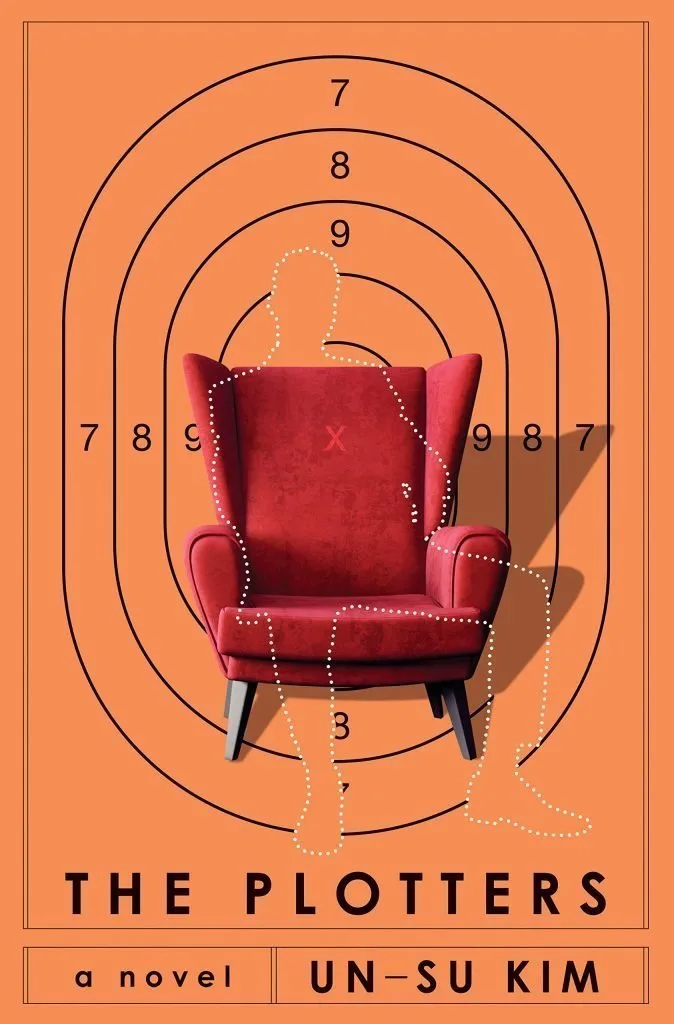
The most important thing to note about The Plotters is that it’s billed as a thriller, but it is actually far more than that. Rather than blending genres and emerging as a kind of Frankenstein’s Monster of different styles, The Plotters rather refuses to acknowledge genre.
The Plotters tells the story of Reseng, a successful assassin raised in The Doghouse Library – a library filled with books but empty of people, somewhere in Seoul – by an enigmatic old man known as Old Raccoon. Reseng has grown up knowing of nothing but the business of assassination, and curiously also knowing very little about that, either.
This is a piece of penetrating fiction driven by its eccentric but grounded characters, providing a unique and entertaining setting and circumstance, and telling a story subtly tied to the history and politics of modern day Korea. After the Korean War and the separation of the two Koreas along the thirty-eighth parallel, control of North Korea was seized by the Kim regime.
What is lesser-known, however, is that South Korea too did not have democratic freedom until the 1980s, suffering through martial law for some decades. This key aspect of Korean history plays into the story of The Plotters, as the democratisation creates a power struggle amongst assassins and leaves room for a different kind of man to take charge.
Blending this wild and wonderful story of assassins who work from an old library with real-world political events allows for some subtle commentary on the nature of fascism, martial law, democracy, and even capitalism, with regards to how these things affect the kinds of lives people can lead. Even assassins are not immune to political shifts.
The Plotters is one of the most ambitious Korean novels; something that has to be read to be believed. Its ability to defy genre, allow its plot to be carried along by comedy and eccentric characters, and keep a slow pace that takes time without losing momentum is truly staggering.
It takes influence from the tumultuous events of South Korea’s recent past without becoming dry and melancholy. Most importantly of all, it is fantastically fun.
Buy a copy of The Plotters here!
The Cabinet by Un-su Kim
Translated by Sean Lin Halbert
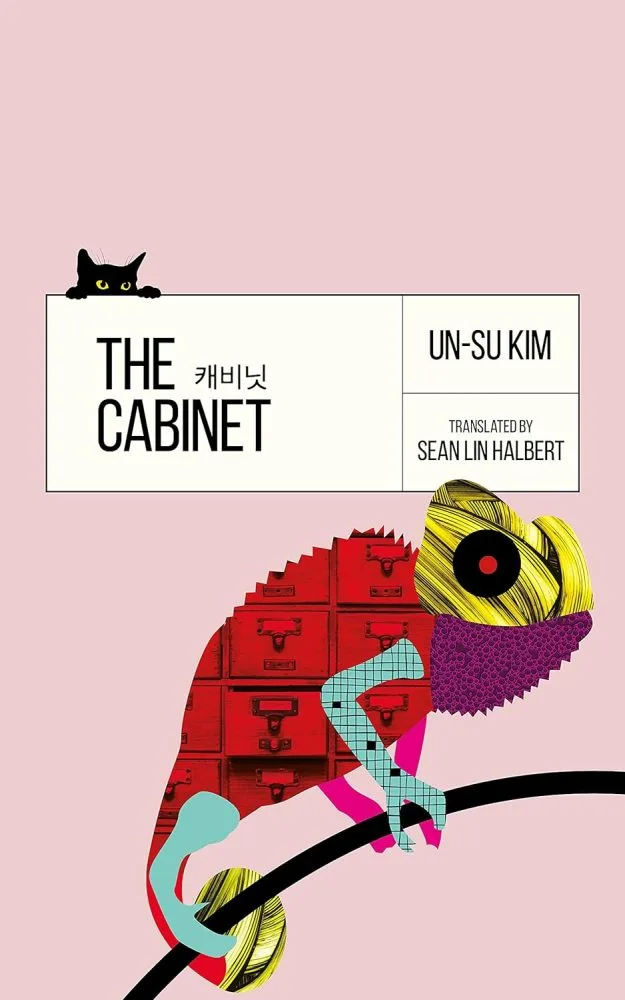
Un-su Kim’s The Cabinet is a fantastic and engaging blend of speculative short stories and a longer, underlying thread. Our protagonist, Mr. Kong, is a simple office worker who has wound up as the caretaker of a filing cabinet full of accounts of strange people known as “symptomers”: human beings with odd conditions and abilities.
The novel contains many stories dedicated to symptomers: a man with a gingko tree growing out of his finger; people who seem to jump forward in time at random; people who sustain themselves off glass, steel, or gasoline. These stories make up half the narrative, and paint a vivid picture of a world that is far stranger than what we see and believe in our day-to-day.
The broader narrative is about Kong himself. We gradually learn about his life, his boss, his childhood, how he ended up in this position. There is a mystery to uncover here, and as the novel progresses, that mystery gradually unfolds in an addictive, tantalising, and strange way.
The Cabinet is a work of boundless imagination, written by a beloved Korean author and translated brilliantly by Sean Lin Halbert.
Buy a copy of The Cabinet here!
Tower by Bae Myung-hoon
Translated by Sung Ryu
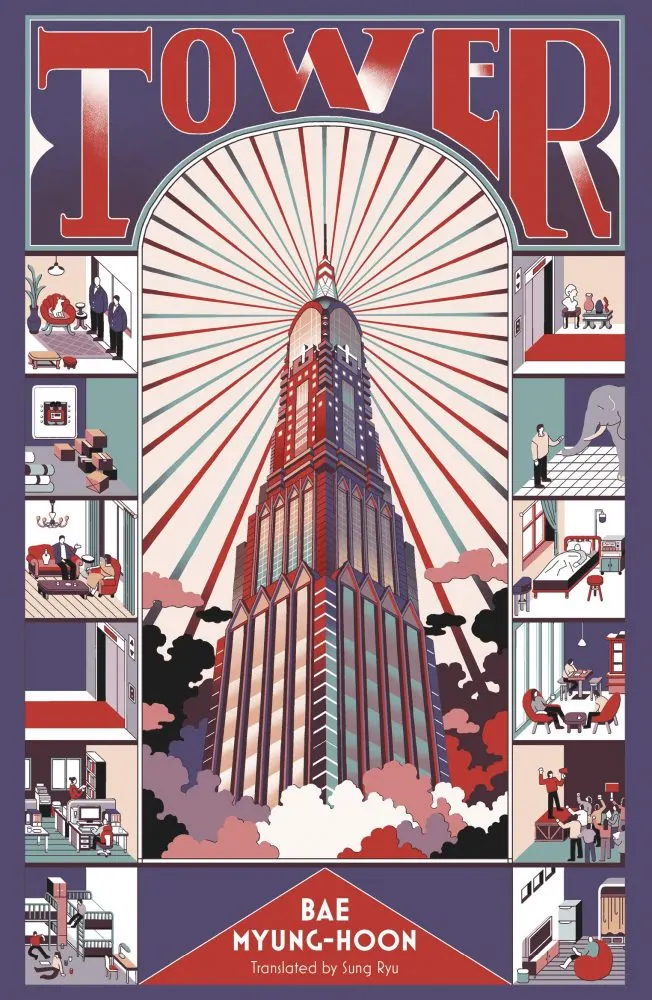
Tower is a truly unique and boundary-pushing piece of Korean science fiction. When we look at Korean novels in translation, too few of them are genre fiction. But that is slowly changing, and Tower is a Korean book you need to pick up and read.
As its name implies, this piece of Korean sci-fi is set entirely in an enormous tower. This titular tower is a nation unto itself, home to 500,000 people. Bae implies that it was built on Korean soil but this is never explicitly stated. The book is divided into a series of interconnected speculative tales, all set within this solitary tower nation known as Beanstalk.
The world-building is fantastic, as the tower needs to be a believable place in order for the author’s disparate tales to work. Infrastructure, economy, politics, and daily life all need to be accounted for and designed in a way that the reader can understand and appreciate.
The six stories in Tower are tied together by the place itself and by recurring characters and events. And each story serves to further build the world while also telling an entirely self-contained tale. In that sense, this is a unique piece of Korean fiction that blends the concepts of the novel and the short story collection.
And each tale also, as all good science fiction does, poses an ethical, political, or philosophical quandary for us to muse over.
I’m Waiting for You by Kim Bo-young
Translated by Sung Ryu and Sophie Bowman
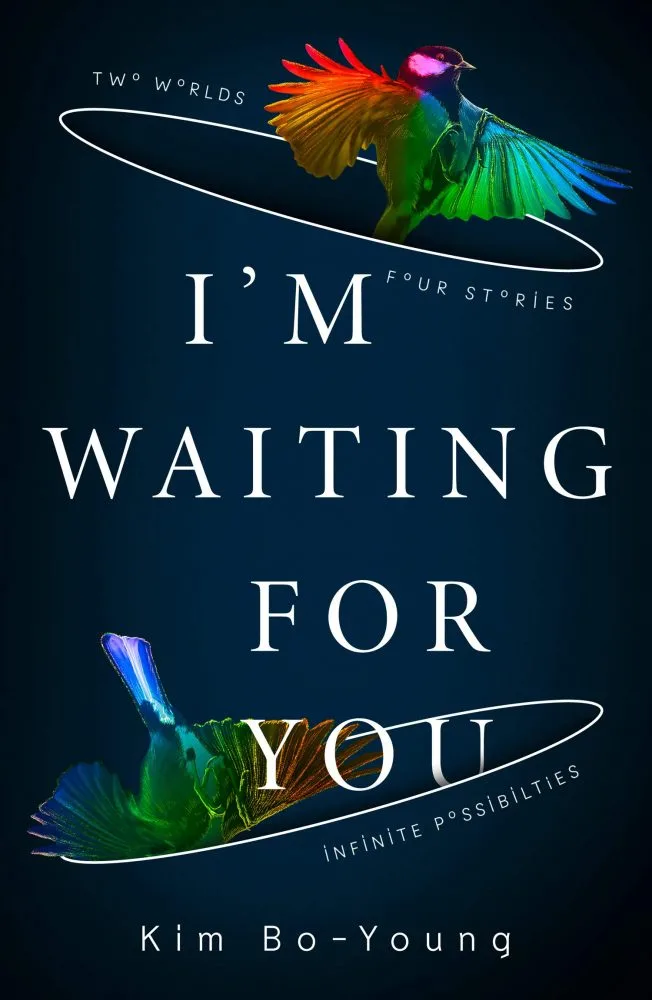
With the spread of Korean science fiction into the West, through the hard work of talented and dedicated translators like Ryu and Bowman, we get incredible gems like this one. I’m Waiting for You is one of the best Korean novels published in the past few years. Here’s why.
Kim Bo-Young is a legend of Korean literature, and even worked as a script editor on Oscar-winning director Bong Joon-Ho’s Snowpiercer. With I’m Waiting for You, readers can see first-hand why she’s such a special sci-fi author. This collection of four stories is essential reading amongst sci-fi books by women writers.
The four stories in this collection actually work as two pairs. The first and fourth stories — I’m Waiting For You and On My Way to You — are the same tale told from two perspectives: a bride and groom each making their way home to Earth for their wedding ceremony.
The second and third stories — The Prophet of Corruption and That One Life — also the longest and shortest tales respectively, blend religion, mysticism, and science fiction. In these two middle tales, the characters are a set of gods, and it is quickly revealed that they created Earth as a school in which they themselves can learn and grow.
The main protagonist of The Prophet of Corruption, Naban, is a single god whose prophets, disciples, and children all separated from them like cells. Individually, they spend entire lifetimes on Earth, learning and experiencing and dying.
Naban believes in asceticism as a school of learning; their children are reborn in low roles; they suffer and toil and eventually return home. But some are rebelling against this approach to living and learning. What makes these stories so tantalisingly addictive is Kim’s world-building and her attempt at writing gods as characters, with motivations and behaviours different from our own.
The stories that bookend this collection are each written in an epistolary fashion, as letters to the other. In I’m Waiting For You, our nameless groom is trying to make it to Earth, and is updating his bride each time something goes awry (and a lot goes awry).
The same is true in On My Way to You; the bride has her own hurdles to overcome. These two stories are heartbreaking. You’ll root for them, cry for them, hope against hope that things will work out for them.
Your Utopia by Bora Chung
Translated by Anton Hur
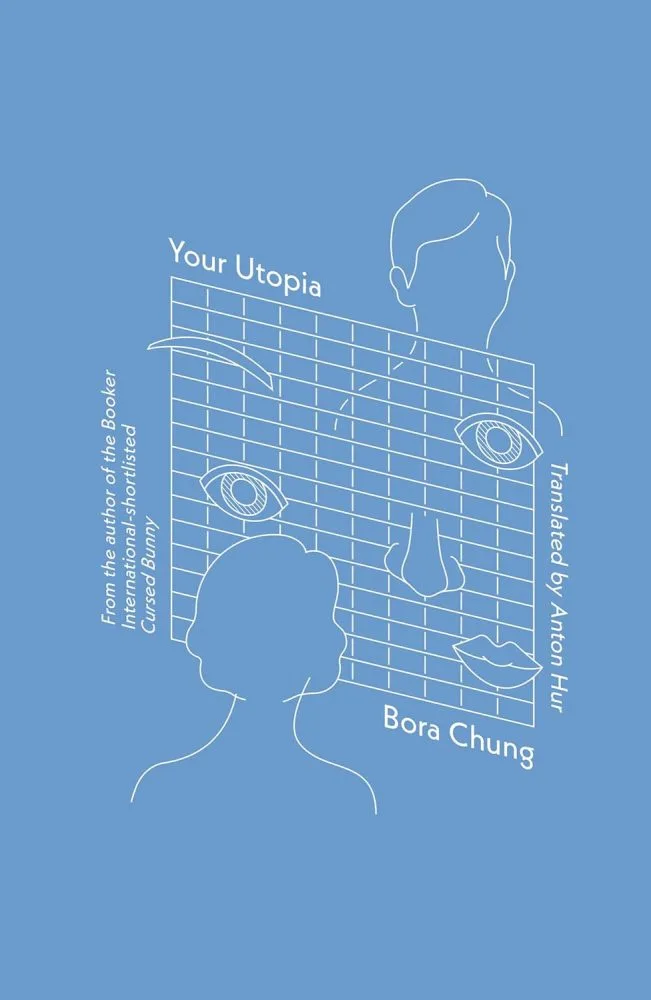
From the author of the wonderfully strange, exciting, and diverse Cursed Bunny, Your Utopia is a science fiction short story collection. The protagonists of this collection vary from far-future space-faring humans to artificially intelligent cars and sentient elevators.
Though these stories are all within the realm of science fiction, they explore an enormous spectrum of style and tone. One story, Seed, is a bleakly funny satire that observes a conversation between a copse of trees and a handful of eugenics-made humans. Another, A Very Ordinary Marriage, follows a newly-married man who becomes paranoid when he catches his wife making secretive phone calls in a language he has never heard before.
The sheer amount of scope and variety in these stories wonderfully showcases the potential of science fiction to tell stories that make readers laugh, scream, and cry. Bora Chung is one of the most imaginative Korean authors, and this imagination is on full display in the stories of Your Utopia.
Buy a copy of Your Utopia here!
The Specters of Algeria by Hwang Yeo Jung
Translated by Yewon Jung
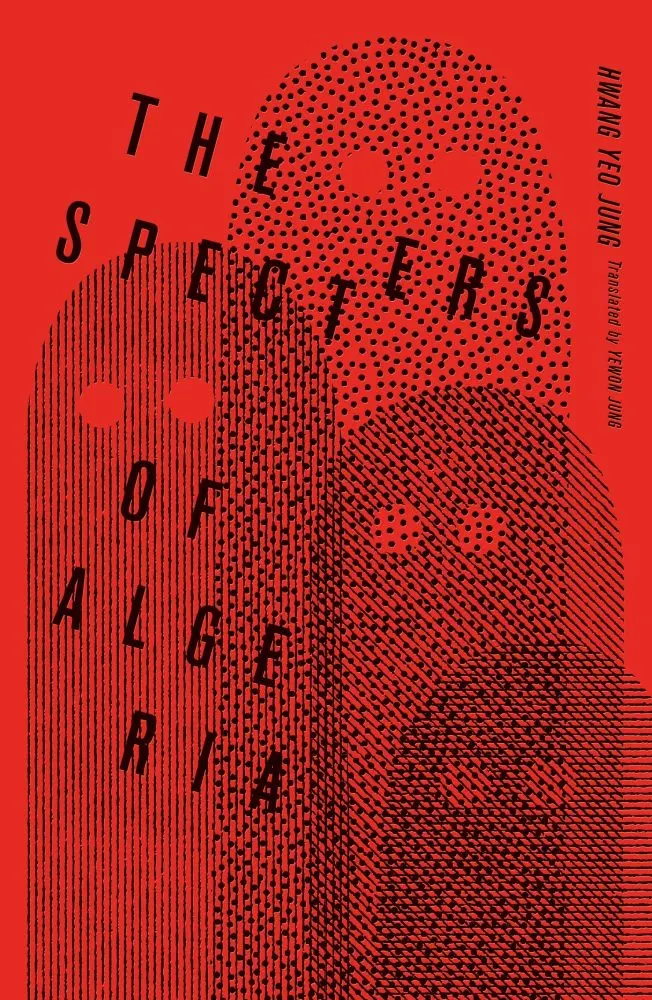
Separated into three acts and an epilogue, The Specters of Algeria begins with a girl named Yul, born during the military dictatorship of South Korea. Yul’s father is part of a theatre troupe, along with the father of her childhood friend Jing. We see the world through Yul’s eyes when the novel first begins.
Like with To Kill A Mockingbird, this naive perspective gives us a blinkered view of Yul’s world, but soon her friend Jing moves abroad and she grows up to own her own dress alteration business. Part two, set in the modern day, follows Cheolsu, a community theatre employee who tracks down Yul’s uncle Osu, a member of the theatre troupe who wrote and directed a play called The Specters of Algeria.
Or did he? As we soon learn, Osu claims that the play was originally written by Karl Marx and was lost to time, until he translated it, claimed it as his own, and directed it during the years of dictatorship as an act of subversion. The Specters of Algeria, like Timerlake Wertenbaker’s Our Country’s Good, is a story about the power of art, specifically theatre, as something that can transcend oppression, push back against it, and bring people together.
Buy a copy of The Specters of Algeria here!
The Age of Doubt by Pak Kyongni
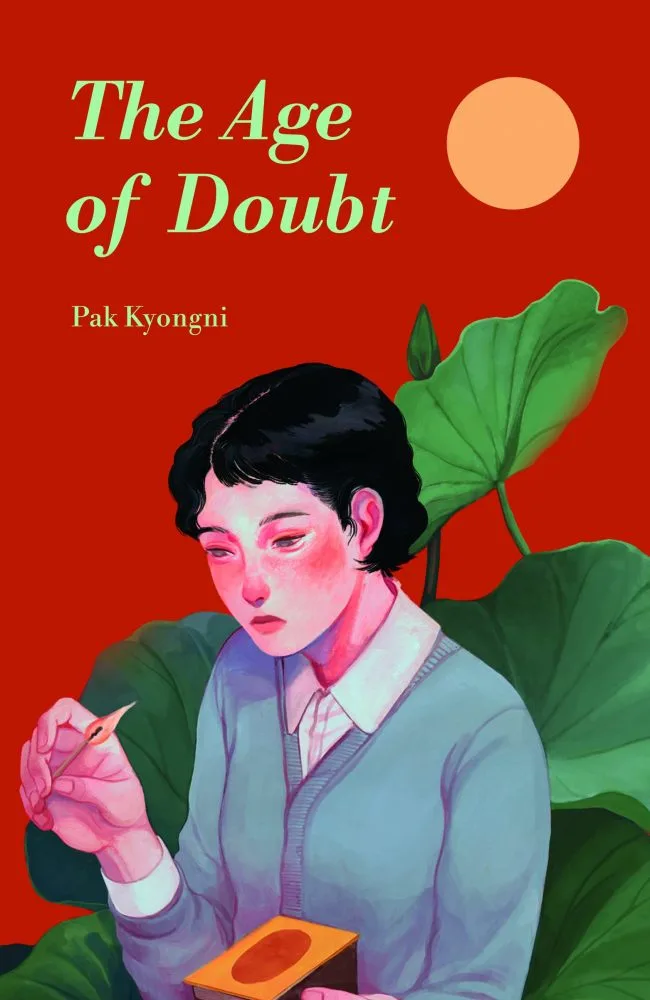
Translated by some of the best Koean-to-English translators working in the industry, including Anton Hur, Sophie Bowman, and Mattho Mandersloot, this is a humbling short story collection. Pak Kyongni was one of Korea’s most celebrated and renowned authors, writing in the decades following the Korean War and through a South Korean dictatorship.
What we have here are six stories and a commentary, all written during the 1950s and 60s, which shed a light on the ordinary lives and tragedies of everyday people during that period. Many of these tales focus on women and their families, such as the titular The Age of Doubt, which follows a woman who lost her husband to the war and her young son to an accident shortly after.
Or the similarly titled The Age of Darkness, which details the intertwined lives of a family shaken by a shared tragedy. Few authors have ever shaken the Korean literary landscape like Pak Kyongni, and to have a selection of her early tales translated in this fashion, in a single collection, is a true gift!
Buy a copy of The Age of Doubt here!
My Brilliant Life by Ae-ran Kim
Translated by Chi-young Kim
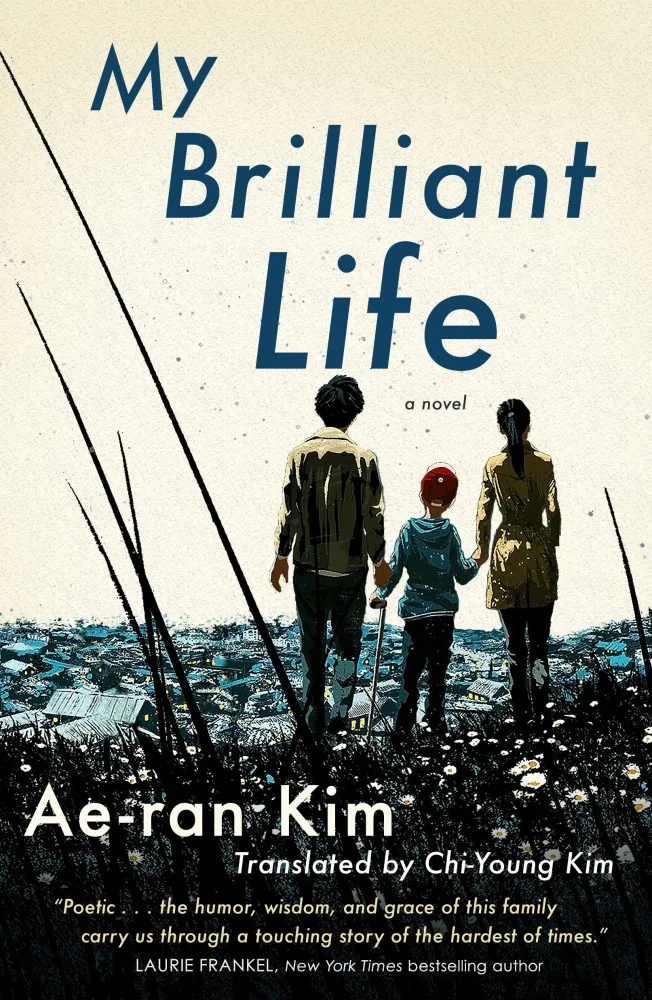
Adapted into a Korean film, and now available in English translation by the translator of Kyung-sook Shin’s Please Look After Mother, My Brilliant Life is a gorgeous gut-punch of a literary novel by Korean author Ae-ran Kim.
My Brilliant Life tells the story of Areum, a sixteen-year-old boy with a degenerative disease. He is not likely to live much longer, given that he has the internal organs of a man in his eighties. Before he dies, however, Areum has a gift he wishes to give to his parents:
“My plan was this: write the story of my parents from the very beginning and give this to them on my seventeenth birthday. Instead of awards or a college diploma, I would gift them this story.”
Areum’s parents were childhood sweethearts; they had him when they themselves were only sixteen. Despite being careless, they made a beautiful family together and Areum became a gift. They formed a perfect, loving family together; something truly inspiring.
Thanks to his parents and their love, Areum has lived a wonderful life, despite its length. And he is grateful for this, so he wishes to give them one final present that highlights and celebrates the beauty of their love and their life together.
Throughout Areum’s youth, his parents have romanced him with stories of their own lives, their young years, and their relationship. He uses these stories to build his book. Meanwhile, as he compiles this final gift, he is in and out of hospital with health problems: blindness, heart failure, epilepsy, and more.
Despite how sad this story is, it remains uplifting. It’s a celebration of love and life and family. It teaches us to be grateful for those who show us love and kindness. It reminds us that life is something to cherish and admire and enjoy. For that reason, My Brilliant Life is one of the most poignant and powerful modern Korean novels.
Buy a copy of My Brilliant Life here!
The Court Dancer by Kyung-sook Shin
Translated by Anton Hur
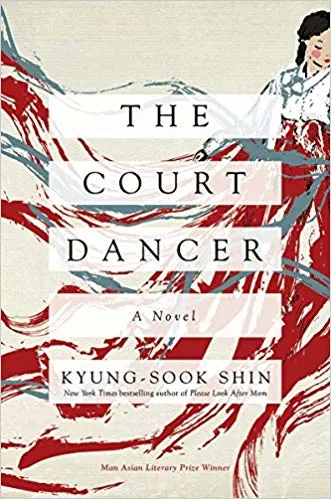
Kyung-Sook Shin has a gift for understanding her own people, her own society, with all of its beauty and its failings — this kind of gift is something that might be considered simple for anyone who is from anywhere at all, but that is arguably very far from the truth. With these skills, she has written some of the best Korean novels ever.
For Shin, each new novel demonstrates new strengths she had not previously revealed; new muscles she has not before flexed. This time she makes the telling of historical fiction seem as effortless as pouring crisp cold water into a glass.
Based on a true story — set in the final years of 19th century Korea as China, Russia, and Japan are threatening the little nation trapped between them — The Court Dancer is being described as a love story first and foremost: the romantic tale of a man and a woman from two different worlds, colliding in a moment of beauty.
And, sure, that’s fine, but really this is the tale of a woman born without a family, adopted into the courts of the Joseon Dynasty, romanced by a French diplomat, whisked away across the waves to foreign shores, and all the while trying to find the time to understand who she is, what she is, and what she wants out of a life that has never really been hers.
It is a tragic tale that transcends place and time to show people of all cultures that a woman’s life must be fought for. In translation, much of Shin’s earlier writing has allowed non-Koreans to experience and understand the mind and heart of the modern Korean.
With The Court Dancer, she has shown us the heart of pre-modern Korea with all the heart and mind she herself always lends to her writing.
Buy a copy of The Court Dancer here!
Untold Night and Day by Bae Suah
Translated by Deborah Smith
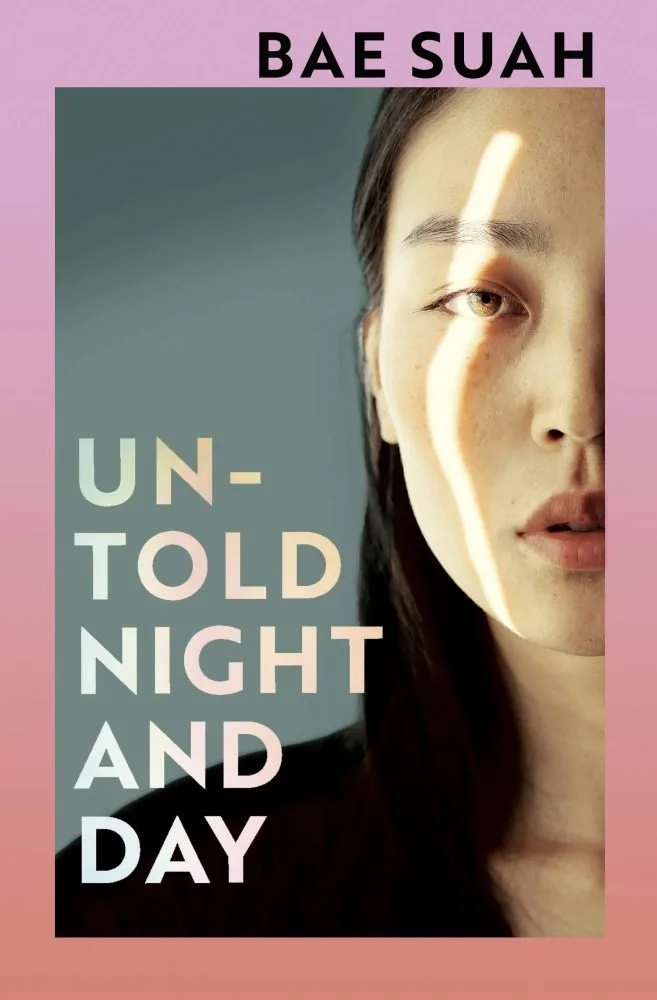
Bae Suah is one of the great contemporary authors of South Korea. Author of A Greater Music, Nowhere to Be Found, and North Station (some of the best Korean novels of all time), she has burst onto the stage that is 2020 with a topsy-turvy surrealist tale that feels uncomfortably in-line with the narrative of the 21st Century.
Untold Night and Day is, to borrow author Sharlene Teo’s words, a fever dream of a novel; a book that is unknowably yet aggressively familiar to all of us. Ayami is a former actress who has worked for two years at a menial position in a tiny, almost entirely unknown, Seoul theatre which puts on auditory performances for blind audiences.
She’s approaching thirty, anxious, and unsure of herself in every way imaginable. She also soon discovers that she will soon be out of a job. What begins as a vivid setup — a drawing with thick black lines — gently begins to grow fuzzy. Ayami’s own colours start to blend, as do those of the story, and of time itself.
Reality, for us and for Ayami, slips away and loops in on itself. Surrealism, soon enough, has its nails in us and it won’t allow us to wake up. There perhaps isn’t a more apt description of Untold Night and Day than ‘fever dream’. This parallel runs deep.
At 150 pages, the novel is short – a quick read that, like a fever dream, manages to play deceptively with time and progress. You’ll wonder how long you’ve had your head in the book before a chapter break eventually allows you to take a breath. You might even emerge sweating and confused.
Untold Night and Day should be read with a clean and sober mind, then talked about after a few vodka shots. It’s a dirty and cracked narrative that encourages questions about our 21st Century world and how we’re living in it. The novel is, indeed, a Lynchian fever dream, but it demands perseverance and complete absorption.
And, honestly, even if you were to try and quit it, the book likely wouldn’t let you. Open it up and let it sink into you as you sink into it.
Buy a copy of Untold Night and Day here!
b, Book, and Me by Kim Sagwa
Translated by Sunhee Jeong
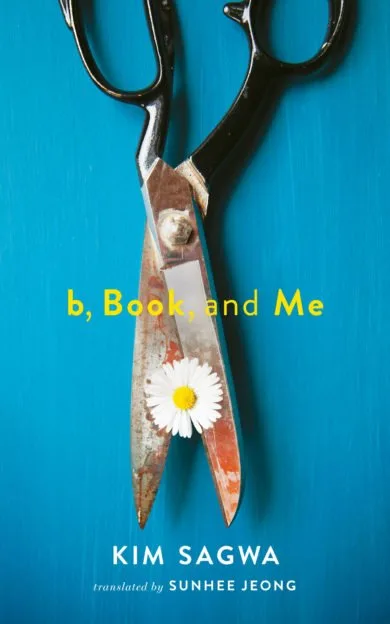
Coming-of-age novels, and stories of self-discovery, can take a variety of forms across myriad genres of fiction, but most are typically grounded in realism, following the rules of their world.
b, Book, and Me is a story of a different sort, leaning on a fever dream surrealism that grows in intensity over time, and using ambiguity and a narrative fog to reinforce the strangeness and frustration felt and experienced by young people year after year. It’s a layered and anxious tale that captures the dangers and mysteries of youth better than most.
The titular b, Book, and Me are our three protagonists: b is a teenage girl from a poor family living in a nameless coastal town in Korea; Book is a friend met along the way who has an obsession with reading and collecting books; and the ‘me’ refers to Rang, our initial narrator and best friend of b.
The novel is split into three parts, with the first following a few clear and beautifully depicted days and memories in the life of Rang. The second follows b and begins to stretch itself into a feverish surrealism that mirrors her own unique fears, struggles, and stresses. The third teams the two up with Book as the walls of reality almost fall away entirely.
b, Book, and Me is one of the most creative Korean novels; it does an uncanny job of illustrating the often surreal and frightening life of a teenager growing up somewhere unknown, with vague ideas that there is more beyond their world.
The novel’s dreamlike nature is gently poured into the narrative as it moves forward and serves to reinforce the themes of the plot and the nature of its characters. Our protagonists are likeable, their motivations clear, and their world eerily understandable in spite of its impossible qualities.
Rarely does a novel manage to be so abstract and fluid and yet so clearly relatable. b, Book, and Me is a smart, beautifully written, masterfully translated work of Korean fiction that makes for a frightening yet true-to-life story of self-discovery and friendship.
The Hole by Hye-young Pyun
Translated by Sora Kim-Russell
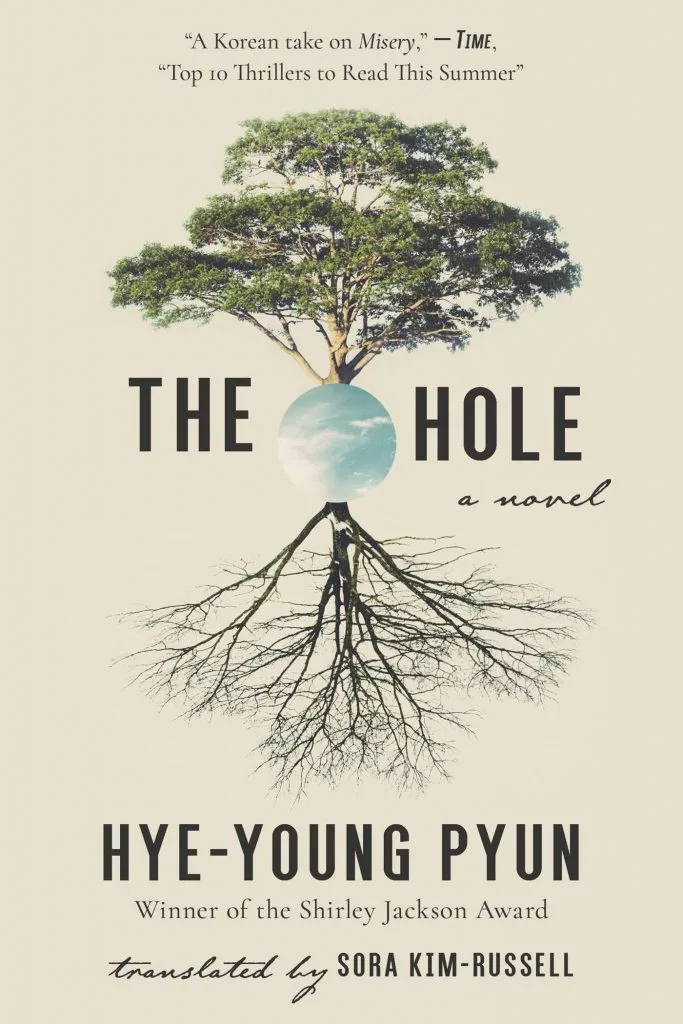
Here is, perhaps, an entirely new kind of frightening. We’re living in a new golden age of horror films right now, and, if Hye-young Pyun’s books are any indication, a parallel golden age of horror writing as well. The protagonist and narrator of The Hole is the adorably-named Oghi, whom we learn about in two forms: In flashbacks where Oghi is presented as a successful professor and academic in a marriage falling apart.
This provides the disparity between Oghi’s successes and his wife’s failures which cause an uncomfortable rift between them. And in the present day. We find Oghi after a car crash leaves him unable to move or even speak, only communicating in blinks and the odd twitch of his left hand.
With these contrasting Oghis — the memories of him being confident, at times callous, versus the present day where he is mute and every voice has a patronising tone — create an immediately unsettling paradigm shift. The reader will find that, after each flashback ends, a kind of anti-catharsis sets in as we remember that, in the present day, Oghi is a prisoner in his own body; a narrator who cannot narrate. This is the first terror of the story.
The other terror comes in the form of Oghi’s mother-in-law, both his caretaker and sole remaining family member. After losing her daughter in the same crash that left Oghi paralysed, his mother-in-law is hardly an emotionally stable caretaker. To say more would be to risk spoiling things.
Where The Hole shines, and wherein lies its true terror, is the state of Oghi’s body and his mind. So much horror and suspense writing relies on running, hiding, chasing, and being lost. But Oghi is not lost, and he cannot run. He is trapped from page one.
In choosing to ignore the tropes which make horror what it has become famous for, Pyun has crafted a very new kind of terror which builds on the writing of Franz Kafka, but with none of the black humour that results in staring into the void.
Instead, it replaces that with true, absolute dread which is maintained like a painfully drawn-out musical note for hours, page after page after page. The Hole is one of my favourite Korean novels, as well as one of my favourite horror novels ever.
The White Book by Han Kang
Translated by Deborah Smith
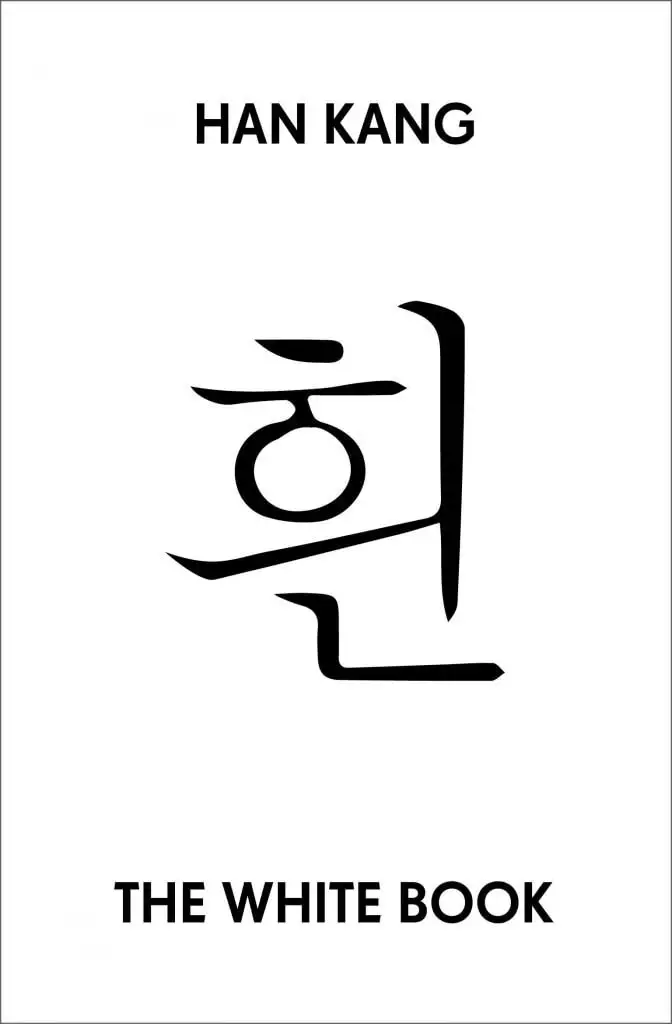
Calling it The White Book feels reductive, almost wrong on purpose. Because The White Book is less a book and more an embracing feeling of familiarity. This book — one of the best Korean novels of our time — is something you live and feel, and all of this is created by its use of empty space.
Han Kang has created a story unlike any you will have read, but beyond being a story it is very much an exploration of the familiar things in life. There are beautiful black and white photos throughout the book, taken by Han Kang, which only add to the experience as you try to grapple with the tone of each beautiful image.
The White Book has real depth and I can’t help but feel that every reader will have a different experience with it. Each tiny chapter of this story is titled with the name of a white thing, and the events and musings of the chapter circle its material theme.
It is this, coupled with the empty space, that so draws the reader into the very feeling of whiteness. A bleak kind of melancholy peacefulness that takes hold and gently squeezes. The narrative flits between first and third person, but always centres on the same lone character: a Korean woman, spending a little time living in an unspecified central European city.
It is here that our nameless narrator spends her time in introspection, though the exact subject of which I dare not say.
The story has nothing in the way of true dialogue, and its chapters are short with the time between them unclear, but what is clear is the way that the character lessens the weight she carries, eases her feelings, and helps the reader lose the tension they perhaps don’t know they are holding onto as they read.
The White Book is an experience inasmuch as it is a novel. I’d urge all Han Kang fans to read it, but also anyone looking for a very different kind of art; art which is difficult to explain and more difficult to talk about afterwards.
Buy a copy of The White Book here!
At Dusk by Hwang Sok-yong
Translated by Sora Kim-Russell
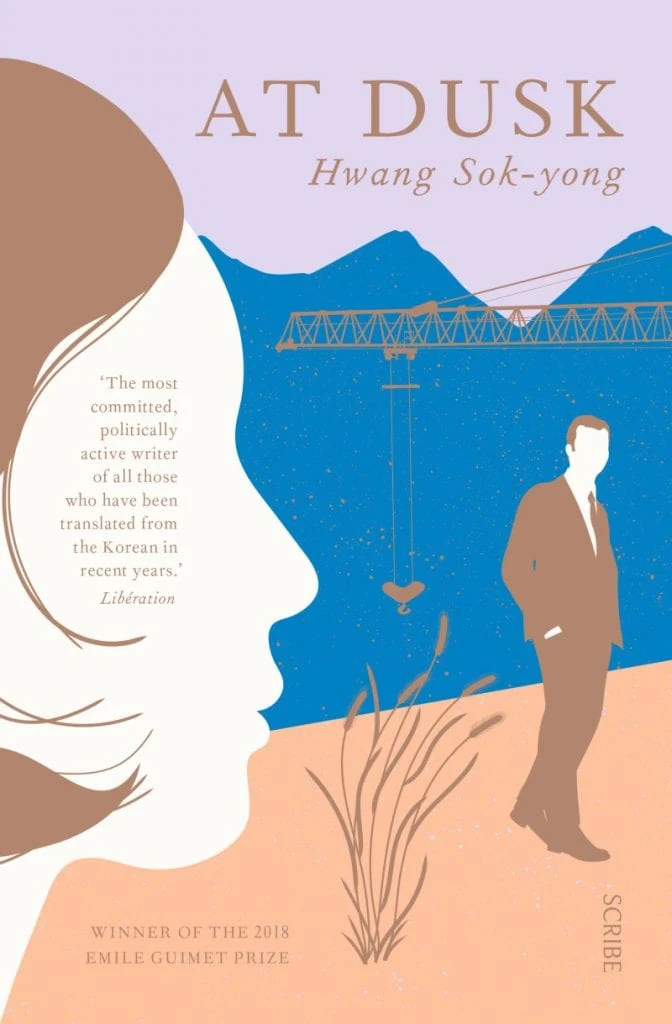
Hwang Sok-yong is arguably Korea’s most prestigious and well-respected living author. Following the success of his novels Princess Bari and Familiar Things, we arrive here, At Dusk.
The narrative here is split in two, with the books odd-numbered chapters recalling the life and memories of Park Minwoo, a rags-to-riches architect approaching old age, and the even chapters following the story of Jung Woohee, a twenty-eight-year-old woman who is barely making ends meet by working part-time to fund her passion for writing and directing theatre.
These two narratives have seemingly nothing in common. Until they do. Park Minwoo’s story is a familiar one: that of a man born into hardship and poverty, working his way through a series of fascinating and intense trials and labours to arrive at the success he always dreamed of.
The interesting twist in the formula here is that, for Park, the trials have always been passed, and now we are treated to a backwards view of his life from the viewpoint of an ageing man who has become disenchanted by his riches and his current social, political, and financial situation.
As for Jung, her tale takes on a very different narrative flavour. It is at once lighter in tone and heavier. Her struggles are in the present, and the immediacy of her pain and her fight for success is felt with real intensity. All the same, she has a lot of personality on show, and her dialogue and her exchanges are packed with vigour.
The theme of the day here is very much in the steadily increasing gravity of regret that weighs down on Park as he considers his role in the modernisation and transformation of modern day Korea. In his flashbacks he slowly begins to pine for the raw life that he had carved out and survived through in the slums of his childhood, a time when perhaps he felt more alive.
To the Warm Horizon by Choi Jin-young
Translated by Soje
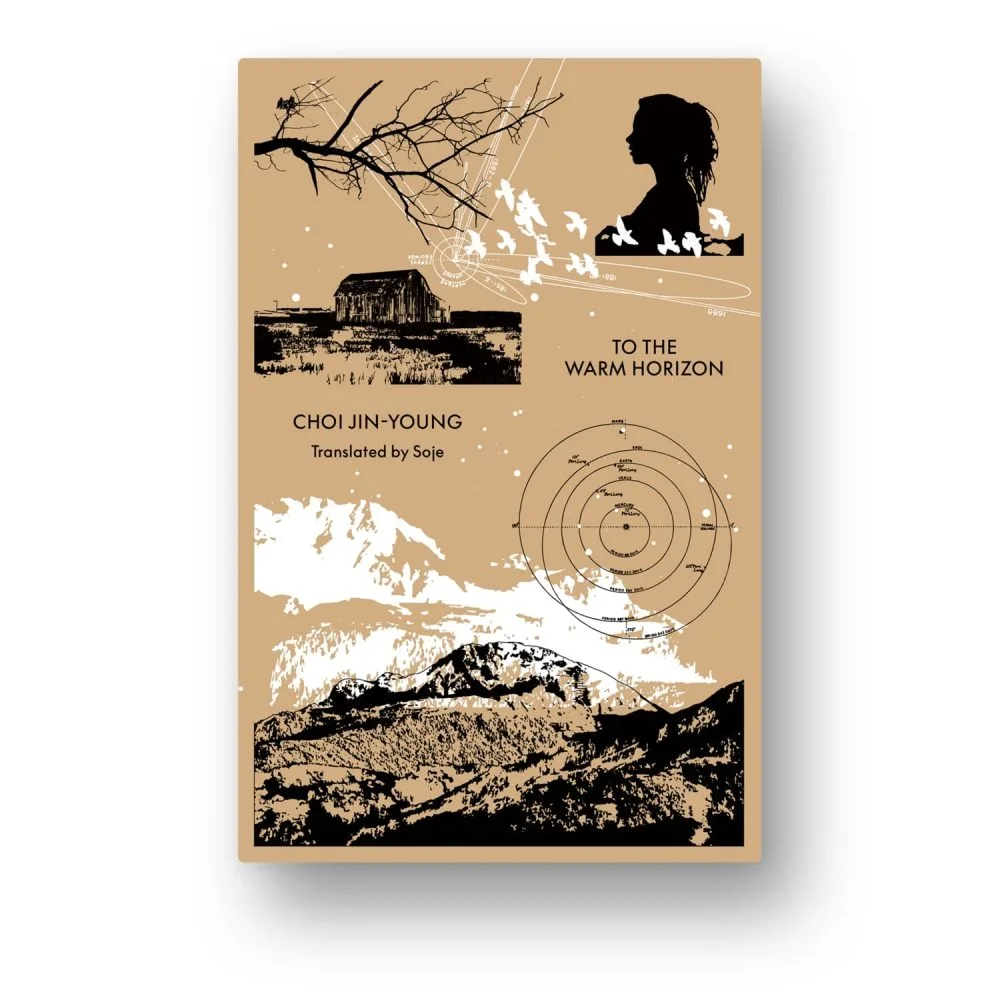
In this harrowing post-apocalyptic novel that brings to mind others of its kind — The Road, Oryx and Crake, I Am Legend — Korean author Choi Jin-young shows us how, against all odds, love can still win out in the end. After a disease has ravaged the entire planet, To The Warm Horizon presents us with two young Korean women who come across one another on the road in the cold wilds of Russia, in the most adverse of circumstances.
Dori lost her parents to the disease and is now in charge of her deaf and mute younger sister. Jina is travelling with her large extended family and childhood friend Gunji. Dori and Jina’s encounter leads to some raw and uncomfortable events, exactly the kind you’d expect to see in a disease-wrought, post-apocalyptic wasteland.
But against and despite all of this, and more,, the love and dedication that grows and is tended between these two women keeps the reader hopeful. This is a beautiful lesbian love story that uses this hook to set it apart from the less hopeful novels that populate the genre of post-apocalyptic fiction, making it an essential modern Korean novel.
Buy a copy of To the Warm Horizon here!
Welcome to the Hyunam-dong Bookshop by Hwang Bo-reum
Translated by Shanna Tan
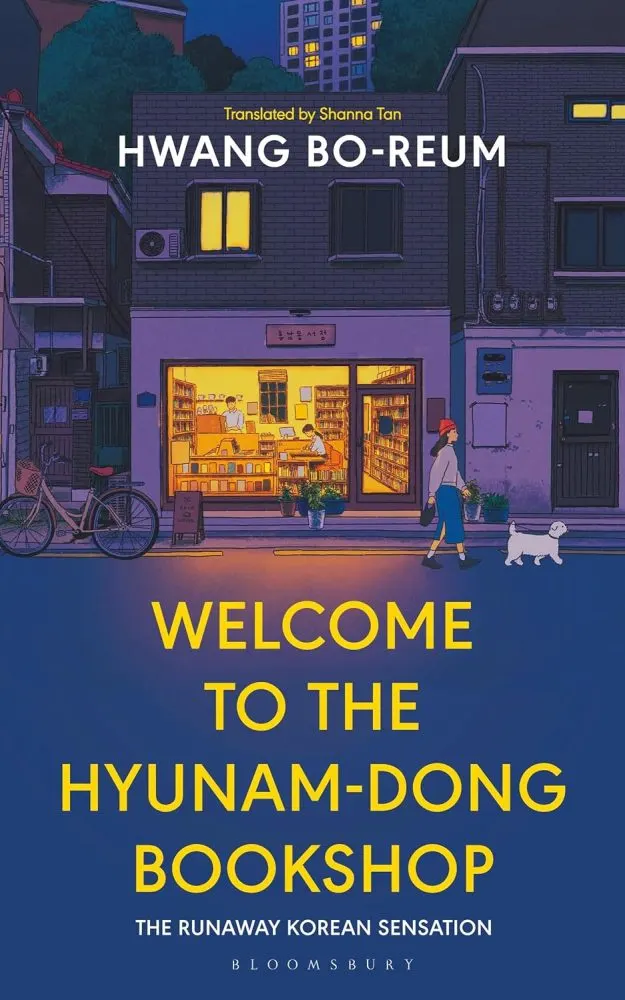
A wonderfully cozy novel which, rather than being led ever onwards by its plot, instead reflects the ebb and flow of ordinary life with charming and astonishing accuracy. This is the story of a woman who, after realising that she is chasing happiness, leaves her job, divorces her husband, and fulfils her dream of opening an independent bookshop.
That woman is Lee Yeongju. Now in her late thirties, Yeongju is the proud owner of the Hyunam-dong Bookshop. And chapter by chapter, we feel as though we are sitting in the corner of her shop as things gently shift and change. She hires a barista, hosts bookclubs, interviews authors in front of a small audience, grows her shop’s social media profile, and builds a steady community of regulars to the shop.
As the cast of characters fills out, we get to know each of them more intimately, and many of them get their own chapters. We watch where they go, listen as they talk through their thoughts and troubles, and admire how they face the choices that appear before them.
Many of the book’s chapters are simple philosophical musings on business, literature, writing, and larger concepts like love and happiness. Our characters talk through their worries with each other and become closer as a result. It is wonderfully true-to-life and a very charming, intimate reading experience.
Endless Blue Sky by Lee Hyoseok
Translated by Steven D. Capener
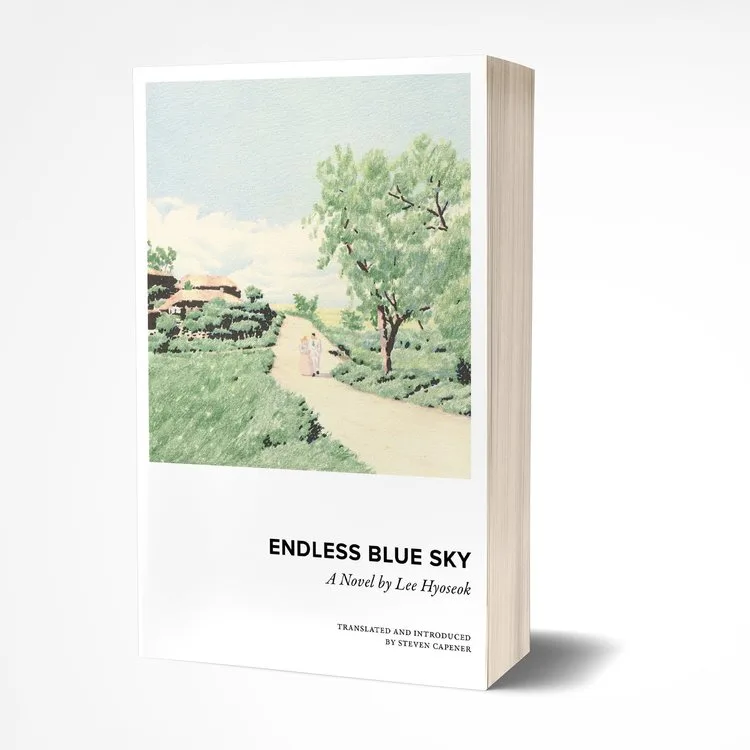
Korea has seen a tumultuous hundred years, with the Japanese occupation, a civil war, and finally a divide carved across its belly, separating North and South. In the midst of such tumult, it is easy for information to be lost.
Fighting back against all of this information loss, and tearing down the barriers of language and time, is the publishing house Honford Star, who began by translating the short stories of many lost Korean writers into English. Endless Blue Sky is Honford Star’s first full-length Korean novel.
The story of Endless Blue Sky begins with our protagonist, the writer Ilma, travelling up to Manchuria for the umpteenth time for business and, while he is there, engaging with a Russian dancer, Nadia, whom he is deeply enamoured with.
Conversing mostly in English, their relationship blossoms quickly; and Nadia, through Ilma, has fallen in love with the fascinating world of Joseon (Korea), demanding to be stolen into it so that she might discover its fashion, its theatre, and its art for herself.
Framing this blossoming romance is a colourful cast of characters, the most eccentric of which being the actress Danyeong, a woman obsessed with separating Ilma from his foreign lover and stealing him away.
Her behaviour is so obscenely cloak-and-dagger that the reader cannot help but picture her, finger to her lips, sneaking a few steps behind Ilma, muttering to herself about love and passion from behind a fake nose and moustache.
More than once, as I read, I considered with a smile that Lee seems to exist as a wonderful opposite to Japan’s Yukio Mishima, a man of far-right conservative values who chose to espouse his nationalistic beliefs through aggressive stories of blood and betrayal.
In much the same way, Lee’s politics are not hidden here, but rather exposed for all to see. The difference is in his opposing beliefs. While Mishima worshipped traditionalism and rejected change, Lee welcomed globalisation, socialism, and the eradication of borders.
While Mishima wrote with angst and rage, Lee wrote with love and celebration, though both wrote from the heart all the same. Lee Hyoseok was absolutely one of the more fascinating writers of early twentieth-century Korea; a man of thrilling political philosophies and a delightfully European approach to storytelling.
Endless Blue Sky is a joy to read, with eccentric characters and a love story that twists and turns with real human depth and agency as it moves on at a swift click. One of the best classic Korean novels and a true literary gem.
City of Ash and Red by Hye-young Pyun
Translated by Sora Kim-Russell
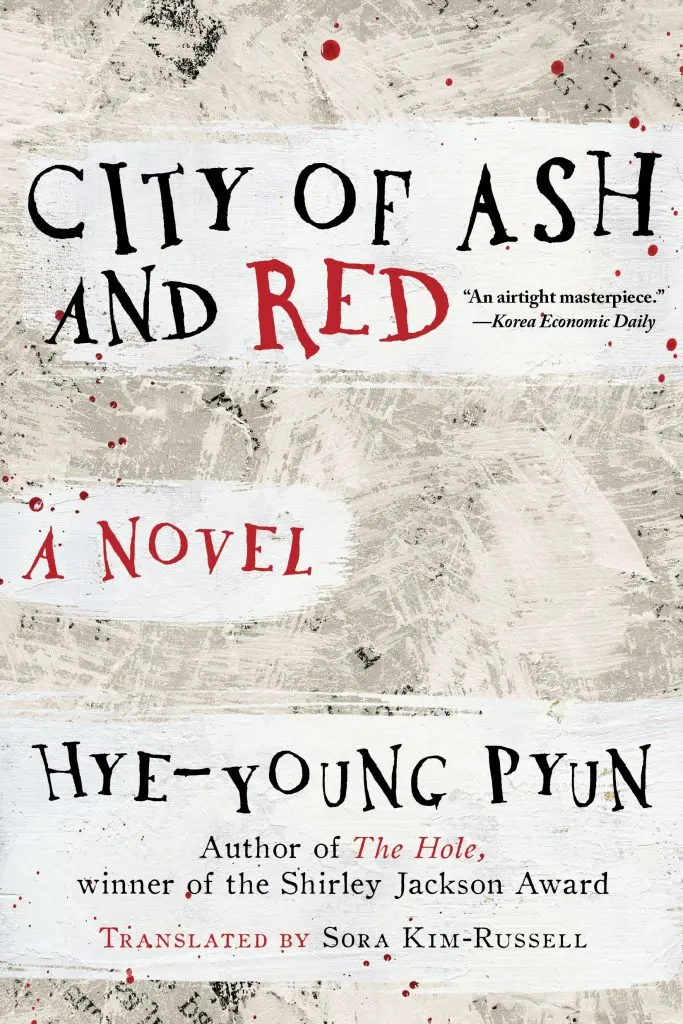
From the writer of The Hole (winner of the Shirley Jackson Award 2017), City of Ash and Red is a phenomenal celebration of all that is dark and wrong, and readers are in for a jolly good dystopian time with this one. This is just more proof of Pyun’s skill as author of the best Korean novels of this century.
Our nameless protagonist (nameless, perhaps, because his name doesn’t matter, or because it’s up for debate), divorced and working as a rat catcher, he is quickly and inexplicably transferred by his company to a country only referred to as C.
Upon arrival he finds the whole country drowning in disease and rubbish, with people being dragged into quarantine, and fear and distrust in the air. For the duration of his transfer, he has been in contact with someone named Mol, but he soon learns that Mol is not so easy to locate – the name is incredibly common in Country C.
This is the first of a hundred problems that our protagonist faces, as he is soon quarantined, released, has his luggage ‘misplaced’, is told not to come into work for ten days, and receives a call from an old friend who had married our protagonist’s ex-wife, only to be told by this friend that their ex-wife was found dead in our hero’s apartment, and he is a prime suspect.
Any fan of Kafka will recognise parallels between this tale and more than one of old Franz’s, with the key link being an overwhelming feeling of confusion, fear, and frustration. Our protagonist seeks answers, but none are to be found.
He wants to explain himself, but nobody will listen — nobody, in fact, cares. He wants to gain a firm grip on the facts, to stop his world from spinning and twisting, but the more desperate he becomes, the more life beats and berates him. You might see why, at this point, calling this book merely Kafkaesque is not enough. City of Ash and Red is something else entirely.
The Color of the Sky Is the Shape of the Heart by Chesil
Translated by Takami Nieda
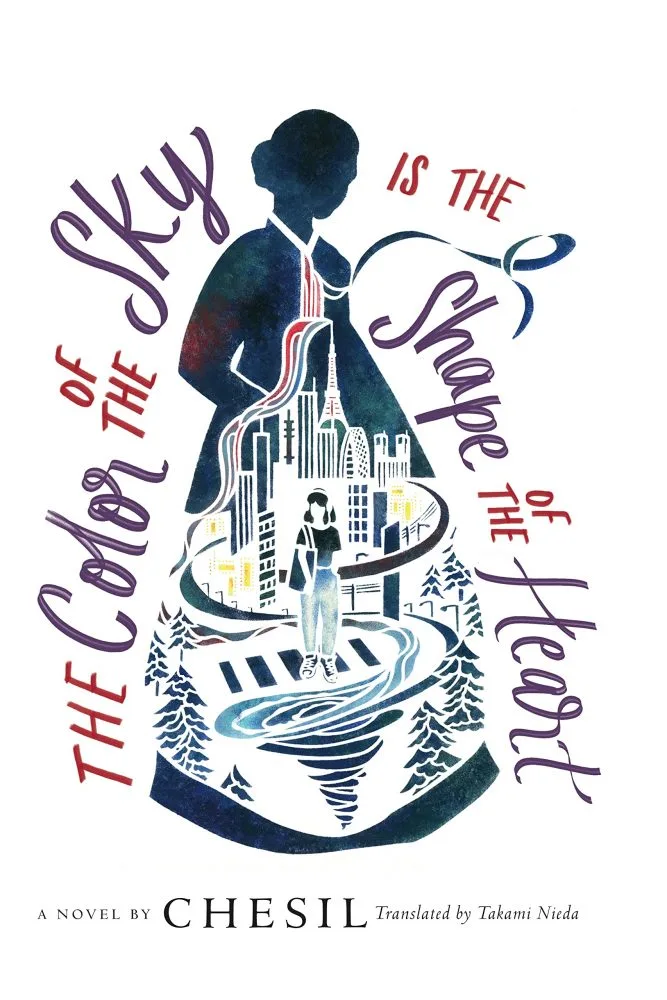
Note: The Color of the Sky Is the Shape of the Heart was written in, and translated from Japanese so consider it a wild card, but it remains vital to the history and culture of modern Korea. Inspired by the author’s own experiences as a Zainichi Korean in Japan, The Color of the Sky Is the Shape of the Heart sheds a bright light on this subculture of Japanese people.
Zainichi Koreans are Japanese citizens of Korean heritage whose existence came around as a result of the Japanese empire’s occupation of the Korean peninsula. Our protagonist, Ginny/Jinhee Park, was born of Zainichi Korean parents and raised in Japan, speaking only Japanese.
At the beginning of the novel, Ginny lives in Oregon and recounts to us her childhood in Japan, going to both Japanese and Korean schools. From her earliest age, as a Zainichi Korean, Ginny (born Jinhee), faced discrimination and hardship. We see these hardships through visceral and painful vignettes.
We see the way that Japanese people view Jinhee and her people, and the way she was treated at Korean school as a girl who only speaks Japanese. Jinhee is a child of two cultures but feels like she belongs to neither; discriminated against whichever way she turns.
The Color of the Sky Is the Shape of the Heart is a difficult read but it couldn’t be anything else. It asks for sympathy and understanding, and has so much to teach us about Zainichi Korean culture.
